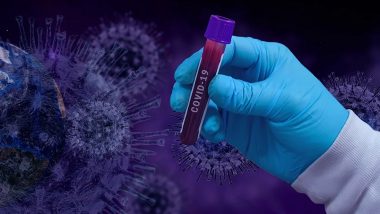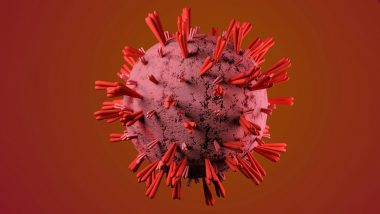New York, Aug 10: A team of US physicians has presented the first known case of a young, healthy adult who after being infected with Covid-19 developed brain inflammation, offering new insights into potential neurological effects post the infectious disease.
Although Covid-19 is primarily treated as a respiratory disease, patients often experience neurological problems, such as headaches, anxiety, depression and cognitive issues, which can persist long after other symptoms have resolved. COVID-19 Alters Fight-Or-Flight Response in Healthy Young People: Report.
Some research has shown blood vessel damage and inflammation referred to as vasculitis in Covid-19 patients' brains and central nervous system (CNS). Most cases of CNS vasculitis have been associated with elderly patients with severe Covid-19.
In the journal Neurology: Neuroimmunology and Neuroinflammation, a multidisciplinary team of physicians at University of California San Diego School of Medicine reported the case of a 26-year-old woman who was diagnosed with Covid-19 four days after an airplane flight in mid-March 2020.
Her symptoms were mild, but progressed two to three weeks later to difficulty moving her left foot and weakness on the left side of her body. She had no headaches and had experienced no change in her mental status or cognition.
Magnetic resonance imaging, however, revealed multiple lesions in the right frontoparietal region of the brain, which is involved in motor control and sensation of the left side of the body. A biopsy revealed CNS lymphocytic vasculitis -- inflammation or swelling of blood vessels in the brain and spine.
"This patient was the first confirmed case of Covid-19 CNS vasculitis, confirmed by biopsy, in a young healthy patient with otherwise mild Covid-19 infection," said Jennifer Graves, a neurologist at UC San Diego Health.
"Her case tells researchers and clinicians to consider these serious potential brain complications even in young patients and those with minor initial Covid-19 infections," she added.
The woman underwent a series of corticosteroid-based treatments, began a long-term immunosuppressive medication, and, after six months, the lesions had substantially decreased and no new lesions had formed. She is still under treatment with immunosuppressive medications, the researchers said.
(The above story first appeared on LatestLY on Aug 10, 2021 02:16 PM IST. For more news and updates on politics, world, sports, entertainment and lifestyle, log on to our website latestly.com).













 Quickly
Quickly




















